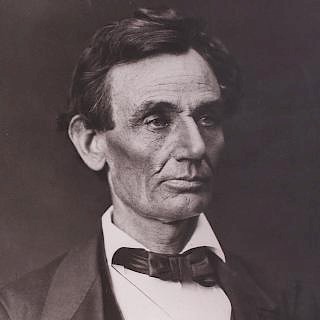Documents Relating to the Pardon of Capt. William H. Wiltberger, CSA 5th Georgia Cavalry, "Georgia Hussars"
About Seller
6270 Este Ave.
Cincinnati , OH 45232
United States
With offices in Cincinnati, Cleveland and Denver, Cowan’s holds over 40 auctions each year, with annual sales exceeding $16M. We reach buyers around the globe, and take pride in our reputation for integrity, customer service and great results. A full-service house, Cowan’s Auctions specializes in Am...Read more
Two ways to bid:
- Leave a max absentee bid and the platform will bid on your behalf up to your maximum bid during the live auction.
- Bid live during the auction and your bids will be submitted real-time to the auctioneer.
Bid Increments
| Price | Bid Increment |
|---|---|
| $0 | $25 |
| $500 | $50 |
| $1,000 | $100 |
| $2,000 | $250 |
| $5,000 | $500 |
| $10,000 | $1,000 |
| $20,000 | $2,500 |
| $50,000 | $5,000 |
| $100,000 | $10,000 |
About Auction
Jul 21, 2014 - Jul 22, 2014
Cowan's Auctions dawnie@cowans.com
- Lot Description
Includes official U.S. Department of State pardon signed by William Seward, 13 Dec. 1865, Washington, DC. With red wafer seal and blue ribbon. Inside is a letter to Seward, with partially printed acceptance of pardon, also dated 13 Dec. 1865, Washington, DC. Signed W(?).D. Reynolds.
5 x 8 in., Washington, DC, June 30, 1865. On Attorney General's Office letterhead. Addressed to W.H. Wiltberger. Signed M.F. Pleasants, Pardon Clerk. Letter informs Mr. Wiltberger: "Your petition for pardon & amnesty have been granted & requisition for the Warrant sent to the State Dept. this day. Owing to the pressure in this class of cases, & the President's illness there may be a delay of several days in the delivery of the "parchment" as soon as recd. I will forward it to you."
Also included is an official State Dept. cover addressed to Mr. Wiltberger, that probably contained the "parchment" copy of his pardon. Black wax seal on back intact.
William H. Wiltberger enlisted in May 1862 as a captain in the 2nd GA Cavalry. He transferred to Co. A, 5th GA Cav. in Jan. 1863. He was promoted to Major during the war (possibly as part of the transfer, as was often the case). He was transferred from Co. A to F&S. The 5th GA Cav. was formed that January by combining the 1st and 2nd Battalions GA Cav., and Co. A was known as the "Georgia Hussars." Their initial assignment was to defend against Union incursions into Georgia and S. Carolina. They then were sent to join Gen. P.G.T Beauregard in S. Carolina, where they joined in a number of battles in the area. Next, they were ordered back to Savannah in May 1864, but their orders were changed while they were en route, and they were sent to aid Gen. Joseph Wheeler, participating in the battle for Atlanta, where they lost a large number of men. They saw many subsequent battles, including Kennesaw Mountain, Big Shanty, Chattahoochee River, and more. Their last battle was Morrisville Station on Apr. 13-14, 1865 (nearly a week after Lee had surrendered). They surrendered on Apr. 26.
The only W.D. Reynolds we find are privates, and they were "blanket pardoned." These elaborate pardons were reserved for officers.A few areas of toning; short splits at folds of larger document.Water stain in center of Wiltberger's letter that has "washed out" a bit of the ink. Still readable, but not as dark as it was originally.Condition
- Shipping Info
-
SHIPPING. At the request of the buyer, Cowan's will authorize the shipment of purchased items. Shipments usually occur within two weeks after payment has been received. Shipment is generally made via UPS Ground service. Unless buyer gives special instructions, the shipping method shall be at the sole discretion of Cowan's Auctions, Inc.. Cowan's is in no way responsible for the acts or omissions of independent handlers, packers or shippers of purchased items or for any loss, damage or delay from the packing or shipping of any property.
-
- Buyer's Premium



 EUR
EUR CAD
CAD AUD
AUD GBP
GBP MXN
MXN HKD
HKD CNY
CNY MYR
MYR SEK
SEK SGD
SGD CHF
CHF THB
THB



